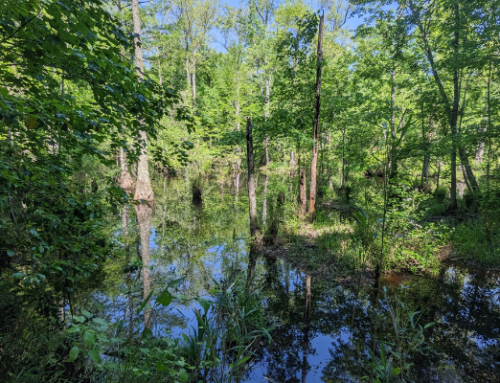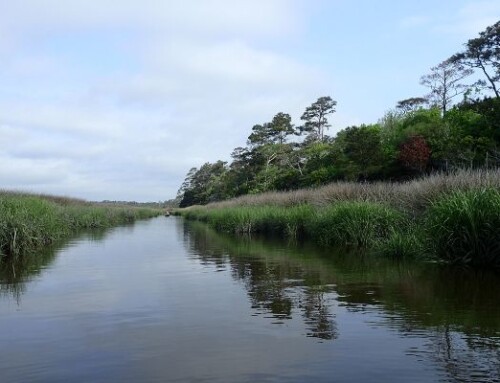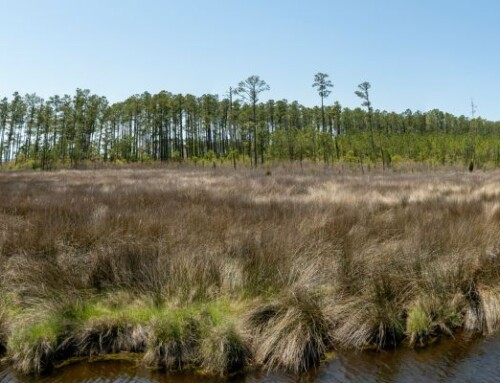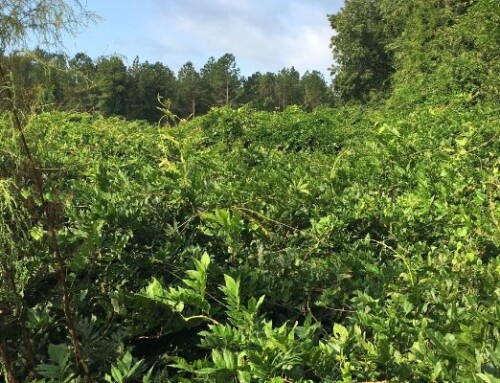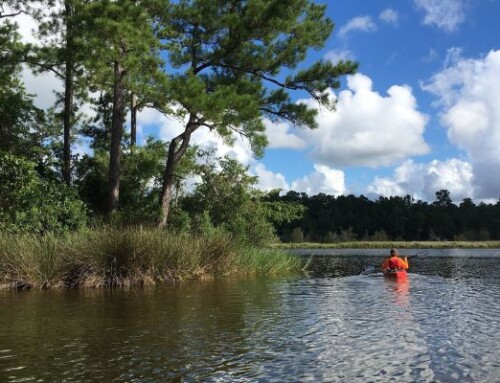Welcome to National Invasive Species Week! This week serves as a reminder of the critical importance of protecting our ecosystems from the threats posed by invasive species. Invasive species, whether plants, animals, or microorganisms, can wreak havoc on native ecosystems, disrupting natural balance and biodiversity. In this post, we’ll dive into the significance of land conservation in combating invasive species, and more specifically, our work at the Island Creek Preserve.
Understanding the Threat:
According to Dr. Robert Bardon, Associate Dean of Extension and Engagement at the College of Natural Resources and Professor in the Department of Forestry and Environmental Resources, an invasive species is any living organism — plant, animal, insect or microbe — that is introduced to an area outside of its original range and causes harm to the environment, the economy or even human health. These invaders can spread rapidly, fueled by human activities such as trade, travel, and urbanization. Approximately 42% of threatened or endangered species in the United States have declined due to invasive species, for instance.
The Role of Land Conservation:
Land conservation plays a crucial role in mitigating the spread of invasive species. By preserving natural habitats and protecting natural buffer zones, the Coastal Land Trust can limit the encroachment of invasive species into vulnerable ecosystems. Protected areas serve as sanctuaries for native flora and fauna, allowing them to thrive without the threat of invasive competitors.
Wisteria (Wisteria spp.), Chinese Privet (Ligustrum sinense), a non-native subspecies of the Common Reed (Phragmites spp.), and English Ivy (Hedera helix) are just a few of the invasive plants that NCCLT is working to eliminate from some of our preserves.
As an example of our land management practices, the Coastal Land Trust’s 247-acre Island Creek Preserve in Jones County, was covered in 10+ acres of Chinese Wisteria when we purchased the property in 2019. Island Creek lies adjacent to a portion of the Croatan National Forest and serves as the viewshed for the popular Island Creek Forest Walk Trail. Approximately 65% of the preserve is also classified as exceptionally significant by the North Carolina Natural Heritage Program.
Our efforts to eradicate Wisteria began in 2020 and continue today. We’ve made tremendous progress over these last 4 years, but since this invasive species is so persistent, it often requires rigorous efforts that can continue for years. You learn more about the work at Island Creek Preserve here.
As we observe National Invasive Species Week, let us reaffirm our commitment to protecting our precious natural heritage. Through proactive land conservation and management efforts, we can safeguard our ecosystems from the threats posed by invasive species and preserve a diverse landscape for future generations to enjoy. Together, we can make a difference in the fight against invasive species and ensure a healthier, more resilient environment for all.
Here are some tips we share from our friends at The Nature Conservancy:
The best way to fight invasive species is to prevent them from occurring in the first place. Help protect native plants and animals by following these six easy guidelines:
- Verify that the plants you are buying for your yard or garden are not invasive. Replace invasive plants in your garden with non-invasive alternatives. Ask your local nursery staff for help in identifying invasive plants!
- When boating, clean your boat thoroughly before transporting it to a different body of water.
- Clean your boots before you hike in a new area to get rid of hitchhiking weed seeds and pathogens.
- Don’t “pack a pest” when traveling. Fruits and vegetables, plants, insects and animals can carry pests or become invasive themselves. Don’t move firewood (it can harbor forest pests), clean your bags and boots after each hike, and throw out food before you travel from place to place.
- Don’t release aquarium fish and plants, live bait or other exotic animals into the wild. If you plan to own an exotic pet, do your research and plan ahead to make sure you can commit to looking after it.
- Volunteer at your local park, refuge or other wildlife area to help remove invasive species. Click here to see upcoming volunteer opportunities.


